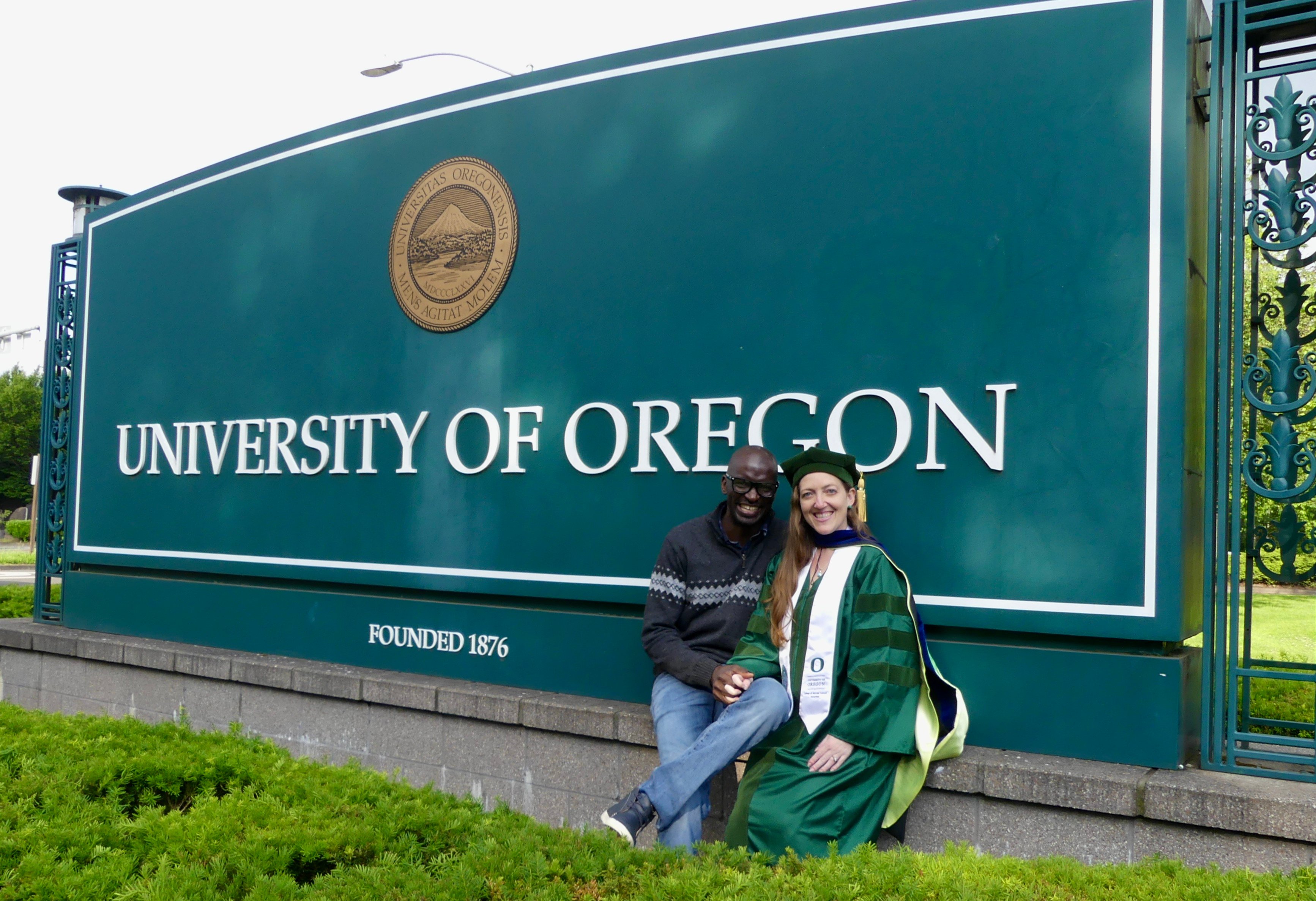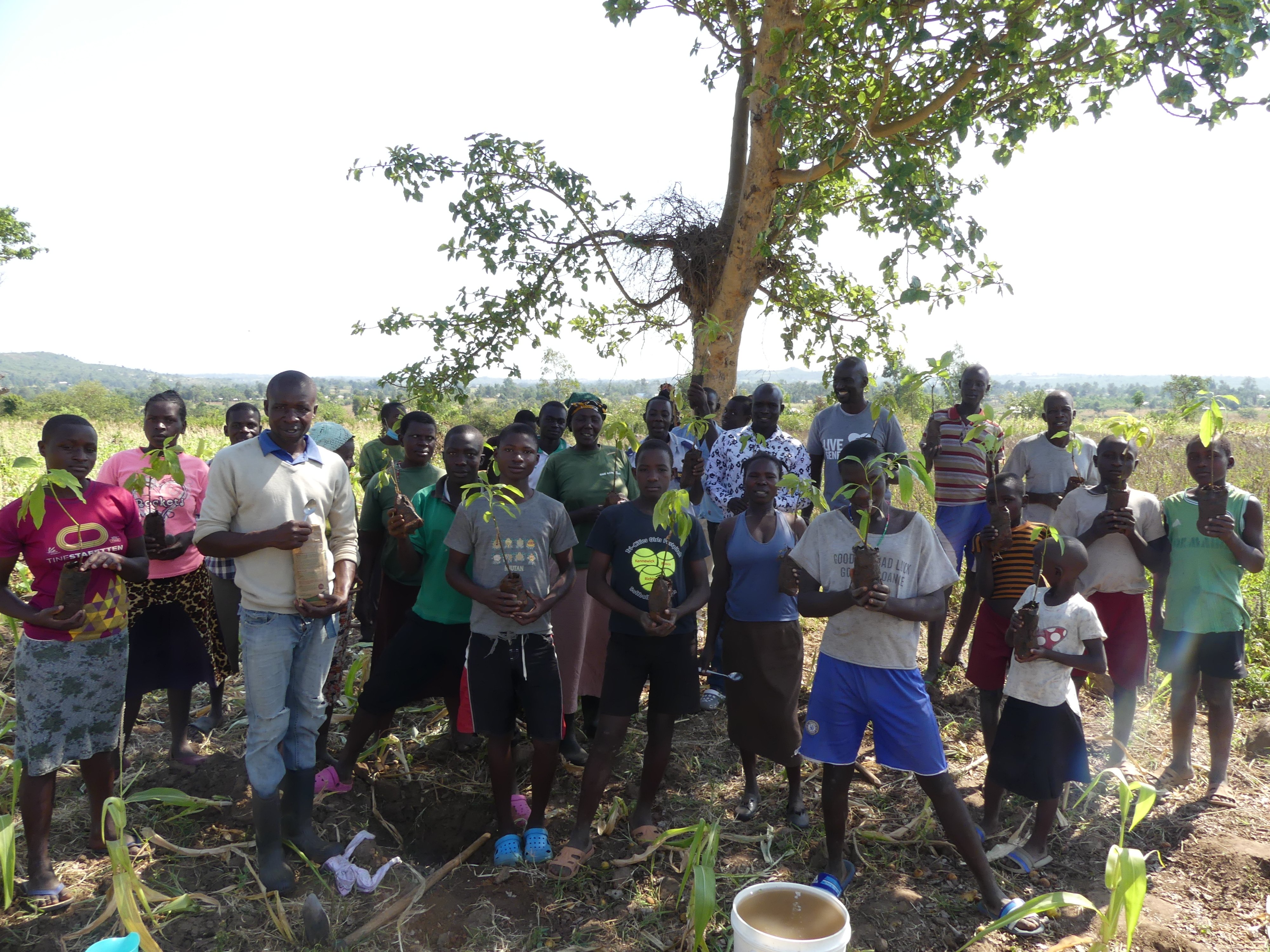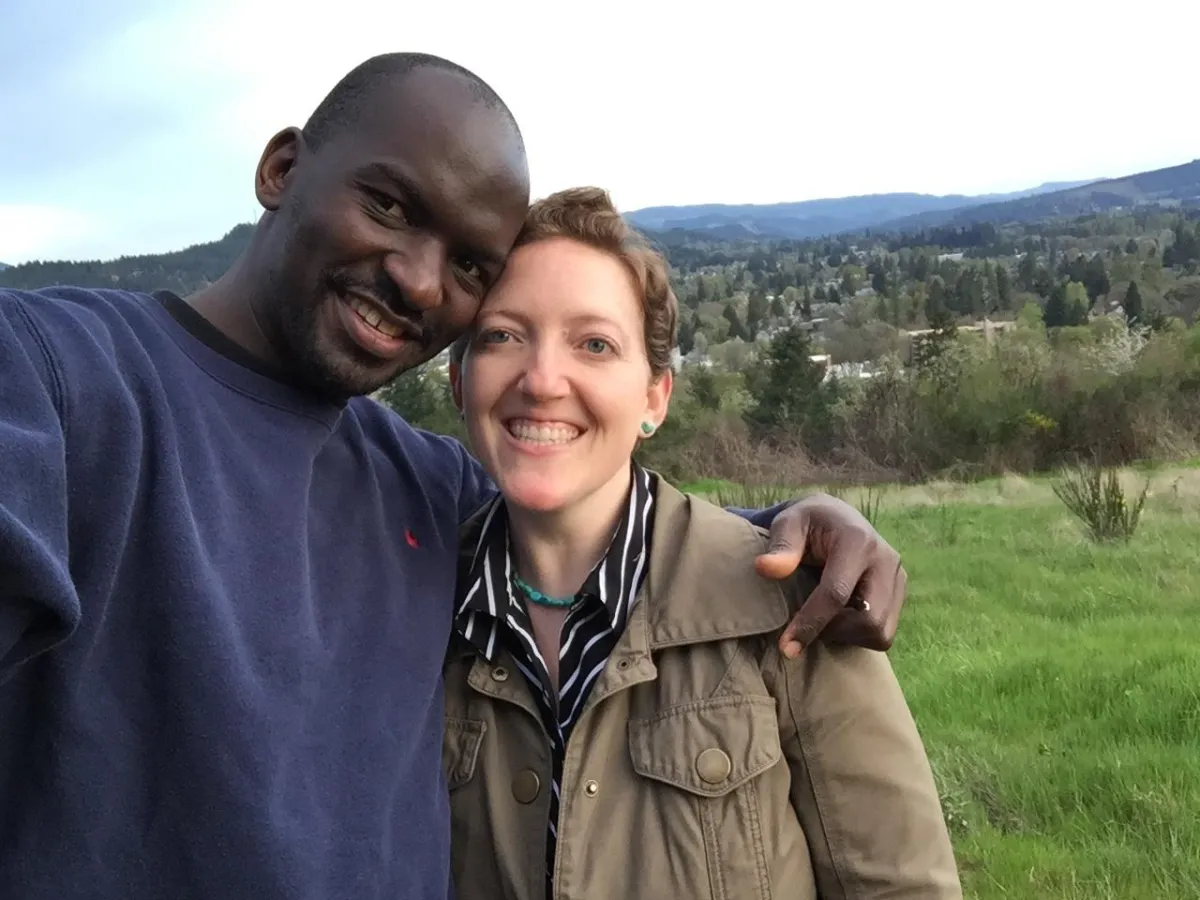
Gordon Okumu, BA ’21 (global studies), and Robin Okumu, PhD ’22 (comparative literature), run the nonprofit organization, Angels of Africa, supporting communities in Gordon’s native Kenya through environmental protection, economic development, health care, and storytelling.
Gordon Okumu, BA ’21 (global studies), remembers attending a community meeting as a child in the city of Migori, in his native western Kenya and shaking the hand of an elected official. He distinctly remembers the difference in the size of their hands and the disparity in their access to resources.
The official had multiple cars, police escorts, and nice clothes, while Okumu often didn’t have shoes. Before that encounter, he hadn’t thought much about wealth and power or felt like he was missing anything; the life he and his mother lived was similar to that of their neighbors. However, shaking the hand of the politician, Okumu began to dream of a different life—one where he could impact change for those around him.
“From that moment, I started feeling like ‘whatever that guy did to be whoever he is, I want to do that,’” Okumu said. “I got this urge in me, saying if I wanted something, I could get it. And I kept telling my mom that I wanted to be a ‘big man,’ a person with power and influence.”
Today, Okumu can say he’s accomplished many of his dreams—founding a nonprofit organization, Angels of Africa, focused on empowering rural African communities, working as a health and environmental investigator for King County, Washington, pursuing a master’s degree in public policy from Oregon State, and becoming a published author alongside his wife, Robin Okumu, PhD ’22 (comparative literature).
Despite his big dreams, these accomplishments didn’t always feel within reach. When Okumu was six months old, his father died in a car accident in Migori, Kenya. He and his mother then moved to Nairobi to search for a better life. At fourteen, Okumu’s mother died of typhoid fever in their shanty home after drinking unclean water. Okumu said the cost of treating typhoid fever at the time in Nairobi was about $30—his mother’s monthly salary.
“She had to pay rent and feed me. There was no way she could buy medicine for us. By sacrificing her own health, she was providing for her child.”
With no living parents, Okumu moved back to rural Migori to live with his maternal grandmother before making his way back to Nairobi again. There he lived on his own and worked as a night guard when he wasn’t attending high school.
Before her death, Okumu’s mother had worked for the Catholic Basilica in Nairobi, and his mother’s former boss sponsored his high school fees. With the priest’s help, Okumu graduated and decided to pursue the priesthood himself, enrolling in a Jesuit seminary in Tanzania. He spent four years there before deciding it wasn’t for him.
Though Okumu chose to pursue his dreams through another avenue, his involvement with the Catholic church helped him make connections with fellow priests and pastors from all over the world through social media—including Father Jonathan Landon, the priest in Charismatic Episcopal Church who supported Okumu as he returned to Nairobi to pursue a bachelor’s degree and a career in politics.
“I wasn’t interested in politics to become powerful or for this show of wealth, but because I wanted to change the livelihood of the people,” Okumu said. “When I completed college, my slogan [became] ‘not a politician, but a leader.’”
Okumu ran for office, hoping to become a member of Kenya’s Parliament, but says he faced multiple death threats and acts of violence. In 2016, he immigrated to the US from Kenya, landing in Cottage Grove, Oregon and staying with Father Landon and his family.
This move is what led him to enroll at the UO—where he was determined to learn new things and meet new people, one of whom would end up being his future spouse.
Creating a shared vision
Robin and Gordon Okumu pose together on the UO's Eugene campus in celebration of Robin's graduation in 2022.
On a snowy day in January 2017, Gordon and Robin Okumu met for dinner in downtown Eugene for their first date. The couple first met at the UO and began developing a friendship before pursuing a romantic relationship.
It was unlike any other first date Robin had experienced—Gordon shared his whole life story growing up in Kenya and immigrating to the US. Robin, who had spent time living in Italy and France before enrolling in the UO’s comparative literature PhD program, was captivated by Gordon’s story.
“We connected really well because we both had these cross-cultural experiences and interests, and we both spoke multiple languages,” Robin said.
Early on in their relationship, Gordon shared his dreams with Robin of starting a nonprofit to serve people in his native country and to write a memoir about his life. The couple quickly began creating a vision together that incorporated Robin’s passions for writing, literature, visual design, and communication.
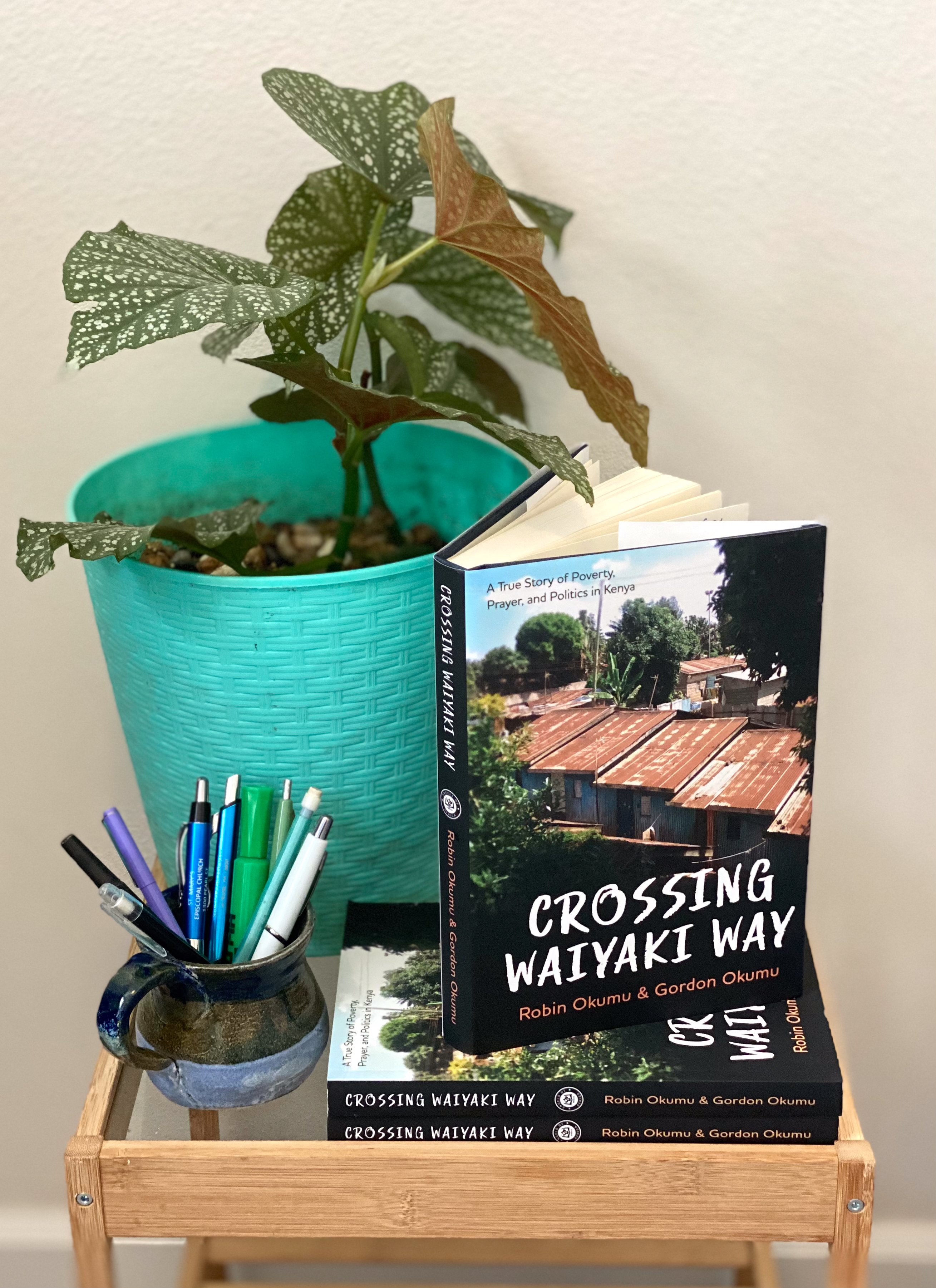
While Gordon leads their nonprofit, Angels of Africa, Robin oversees communications, like the quarterly email newsletter, and the organization’s recently launched Angels of Africa Press. Last year, the Okumus accomplished a big dream together, when they published their first co-authored book, Crossing Waiyaki Way: A True Story of Poverty, Prayer, and Politics in Kenya.
“Each of us complements [the other], and we are stronger [together],” Gordon said. “It’s really a blessing that Robin is here because the nonprofit needs someone who is very strong with communication, and she is the backbone of that. I’m very grateful and proud.”
“Gordon is the one who makes things happen,” Robin said. “It seems like everyone’s always [asking him] ‘how do you get all these things done?’ He’s the hardest working person I’ve ever met, and also a bit of an energizer bunny. If he has an idea or a dream, he will find a way to achieve it.”
Creating systems of support for rural Kenya
In addition to the Angels of Africa Press, the nonprofit supports rural Kenyan communities through environmental protection, economic development, and health care.
Angels of Africa was born out of the idea to drill a community well in Migori, the rural area in western Kenya where Gordon was born. The project was deeply personal for Gordon, as it gave community members clean drinking water—something his mother didn’t have access to, which led to her illness and death.
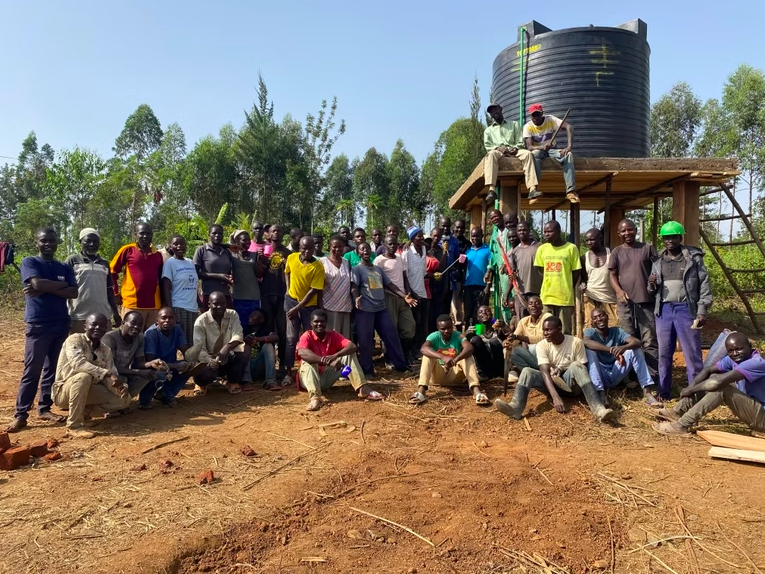
A work group gathers for the Angels of Africa community well drilling project.
After drilling the well, which Gordon said had to go 900 feet underground due to the hard, dry nature of the soil, Angels of Africa put focus toward planting trees in the area, strengthening the resilience of the local environment, in hopes that future wells will not have to be dug so deep. The well now provides water to more than 300 families every day, Gordon said.
A work group gathers for one of Angels of Africa's tree planting projects.
The tree planting initiative led way to opportunities for economic empowerment in the community, with Angels of Africa offering microloans, grants, and training in sustainable agriculture.
“[Many] have been successful in those business models—planting and seeding. It has expanded, with so many applications coming in,” Gordon said.
Angels of Africa’s most recent venture is establishing a small health clinic in the community of Giribe, near Migori, which just opened its doors at the beginning of 2025, when Gordon last traveled to Kenya.
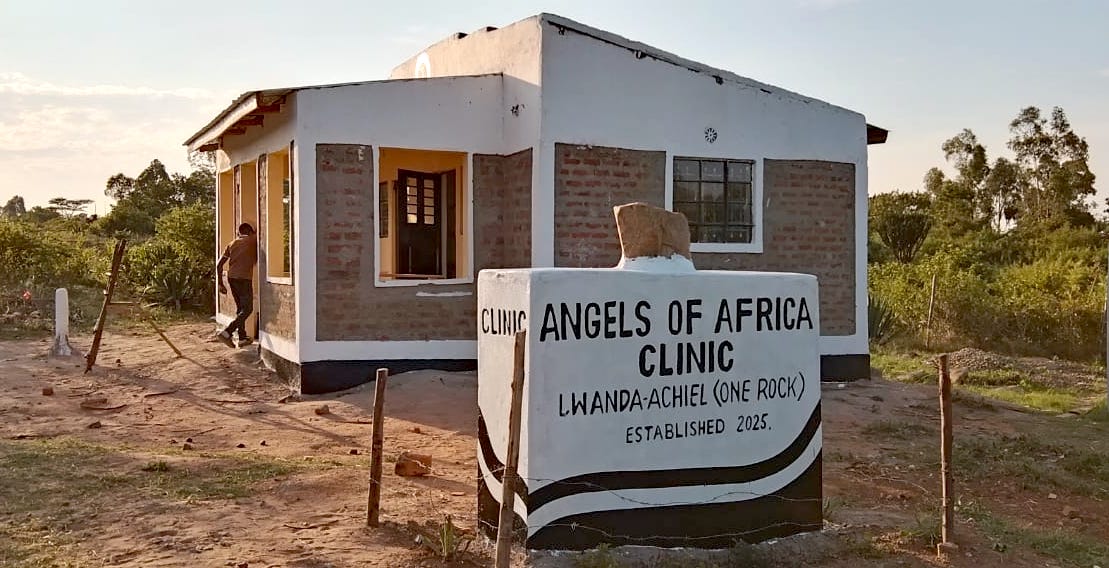
“We have over-the-counter medicines and test kits for malaria, and then we can give malaria medicine because that’s the most common disease there,” Gordon said. “But the big dream is to expand.”
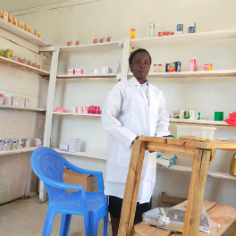
A community health worker inside the Angels of Africa medical clinic dispenses over-the-counter medicines to members of the community.
The Okumus run Angels of Africa from their home in the Seattle area—navigating a ten-hour time difference and staying in communication with board members based in Kenya, as well as donors around the world—all while they both work full-time jobs. And they said they’re just getting started.
Robin and Gordon’s next goals for Angels of Africa are to publish works by other authors through their press, write and publish other books together, build a residence in Western Kenya where they can take donors for mission trips, and upgrade the health clinic to a hospital.
“The nonprofit has grown every year, and sometimes it’s a lot, and sometimes it’s a little. But even just these past months with the press and our book sales and [opening] the clinic, I feel like we’re in a moment where we’re gaining a lot of momentum,” Robin said. “It’s really exciting and we want to continue.”
– By April Miller, UO Alumni Association associate director of marketing and communications


